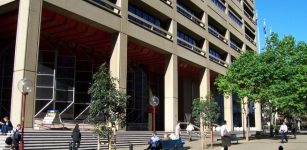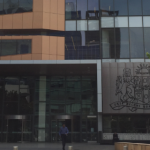Refused Supreme Court Bail? You May Have Another Chance.

Being refused bail and remanded into custody can be a traumatic and difficult experience, especially over the holiday season.
For those who are facing serious criminal charges, delays in the court system can mean they spend over a year in custody awaiting the finalisation of their cases. In many instances, charges will ultimately be withdrawn by the prosecution for lack of evidence or thrown out of court – and it is important to bear in mind that achieving bail can often be far more difficult in light of present bail laws than having the case withdrawn or dismissed.
And the NSW government has made it extremely difficult to achieve costs – let alone compensation for time spent in prison – where a case is dropped or thrown out.
Whilst the Bail Act 2013 attempts to strike a balance between the needs and protection of the community on the one hand, and the rights of the defendant on the other, the fact remains that many innocent people who will ultimately be acquitted are currently languishing in prison cells.
Supreme Court Bail
Once refused bail in the Local Court or District Court, the final “last-bid” attempt at bail for many is to apply for bail in the Supreme Court of New South Wales.
A Supreme Court bail hearing is more formal than a Local Court or District Court bail application. The Supreme Court Justice will usually require documentary or oral evidence to support submissions made, and a hearing may take in excess of one hour.
By way of contrast, a Local Court bail application – where the Magistrate is often dealing with a busy list of other matters – is far more informal and may take less than 10 minutes to hear.
In very serious cases – or where the defendant has a lengthy criminal history or has breached bonds – the chances of being granted bail in the lower courts may be slim. Such cases will often eventually come before the Supreme Court where a detailed application can be prepared and presented.
Of course, a Supreme Court Justice may decide to refuse bail despite hearing a compelling argument and receiving supporting material on behalf of a defendant.
A refusal of bail by the Supreme Court is often considered the “last stop”; unless fresh facts or circumstances are later adduced to justify a further application.
Bail in the New South Wales Court of Criminal Appeal
However, what many criminal lawyers do not realise is that the Bail Act 2013, through section 67(1)(e), provides an avenue for a further bail hearing in the New South Wales Court of Criminal Appeal (NSWCCA) – which is a division of the Supreme Court – after a refusal of bail by the Supreme Court at first instance.
The NSWCCA is the State’s highest court for criminal matters. Its primary role is to hear appeals against convictions and sentences imposed by the NSW District Court. The traditional role of the NSWCCA includes deciding points of law and setting precedents to guide the lower Courts.
Hearings in the NSWCCA are primarily determined on transcripts and exhibits of the proceedings in the lower court.
The NSWCCA’s role does not include hearing fresh bail applications. However, the Bail Act 2013 does allow for any defendant who has been refused bail by a single Supreme Court Justice to have a fresh hearing before three Justices of the NSWCCA. A defendant will be successful if he or she is able to convince at least two of them that bail should be granted.
A bail hearing in the NSWCCA is not an appeal hearing. In other words, the court does not look at the transcripts of the original bail application. Rather, is a hearing ‘de novo’ (a fresh hearing). The three Justices will normally receive any oral or documentary evidence relied on by the defendant, and then hear submissions. The defendant is essentially given another chance to state their case for bail.
Not to be taken lightly
An application under section 67(1)(e) may be a defendant’s their third or fourth attempt at bail.
Before any such application is filed, the defendant should first receive detailed advice about the merits and the prospects of success.
Although, strictly speaking, there is no bar to who can bring an application to the NSWCCA – other than having been refused in the Supreme Court – an application that has no merit or is ill-prepared may be confronted by a hostile bench left wondering why the defendant is being given yet another chance to apply for bail in a court whose traditional function is to determine appeals.
That said, criminal lawyers should be aware of the option when they are representing a defendant who has been unfairly treated in the lower courts.






